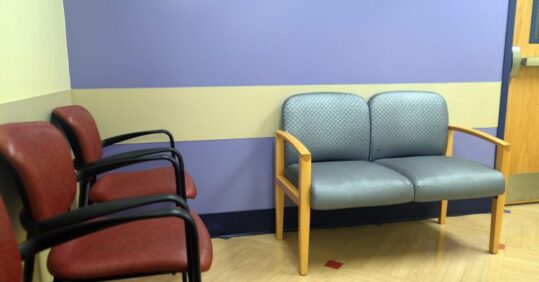Minister claims practices supported by Government as Covid funding dries up

The Government ‘is supporting’ GP practices, the minister for primary care has claimed, despite funding for additional Covid pressures ending last month.
Jo Churchill made the comments at the same time a recently-published NHS England board document said GPs will receive ‘no additional’ Covid-specific funding beyond September.
It also comes as the BMA has bid the Government for ‘ongoing Covid-19 funding for general practice’ to cope with the impact of the pandemic as the UK entered the second spike.
In a written question, Labour MP for Bethnal Green and Bow Rushanara Ali asked the health secretary ‘what additional support he plans to make available to general practices (a) during and (b) after the coronavirus outbreak’.
In her response, Ms Churchill outlined the support given to date to GP practices but said nothing about future funding.
Related Article: New digital support for community nurses in 10-year plan
She said: ‘The Government is supporting general practices in response to the Covid-19 outbreak in several ways.
‘We have facilitated remote working by distributing over 22,000 laptops to general practice staff; have provided a Covid-19 Support Fund to cover additional costs incurred by practices as a result of the response to the virus; have enabled flexibility in the delivery of services to relieve pressures; and have reduced bureaucratic burdens.’
She added that the Government is working with the RCGP to provide access to mental health services for ‘all primary care workers’ via its coaching support for primary care staff service.
GPs were finally invited in August to bid for reimbursement for costs incurred to date during the pandemic, after months of waiting for the support fund to be cleared by the Treasury.
However it excluded details for how to claim for PPE, with NHS England saying this week it will ‘shortly’ announce the process for doing so.
Meanwhile, a recent NHS England paper outlining guidance on contracts and payments said: ‘No additional Covid-19 specific funding for primary medical (general practice) has been allocated by Government beyond September 2020.’
According to the document, local areas will receive ‘a fixed non-recurrent Covid-19 allocation to cover anticipated additional costs for the remainder of 2020/21 as relevant to their services’.
Related Article: Nurse had to ‘freeze’ PPE during pandemic to re-use in care home, Covid inquiry hears
The BMA, which has made a submission ahead of the Government’s spending review calling for a new GP Covid fund, told Pulse this could ‘in theory’ be spent on general practice although there was no guarantee.
Its submission said: ‘Areas where additional recurrent resources are needed include ongoing Covid-19 funding for general practice to reimburse for the additional costs that will continue to be incurred, such as increasing premises capacity and taking on additional staff and additional clinical and non-clinical capacity.’
Meanwhile, GPs and practice staff used Twitter to call for further funding, citing increasing costs for PPE, isolation cover, staff off sick due to ‘increased workload and stress’ and further adaptations needed to buildings.
Over a month ago, NHS England medical director for primary care Dr Nikki Kanani responded to the comments saying she hopes to be able to ‘share information soon’.
However an NHS England spokesperson told Pulse there was no update on this as yet.
Related Article: Tell us what practice nursing means to you and potentially win £1,000
The Treasury set aside an average of £3 per patient for the Covid Support Fund – but although GPs warned that it ‘wouldn’t be enough’, a Pulse investigation showed GPs had so far only been reimbursed less than £2 per patient on average.
NHS England had repeatedly assured practices that any ’additional costs’ would be reimbursed at the start of the pandemic response in the spring.

See how our symptom tool can help you make better sense of patient presentations
Click here to search a symptom




